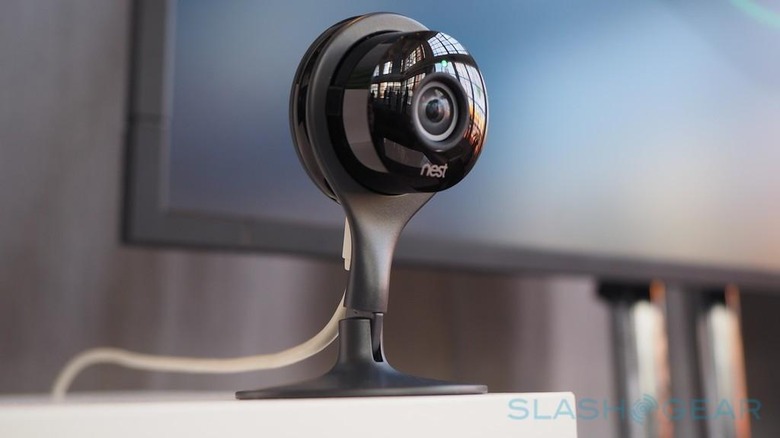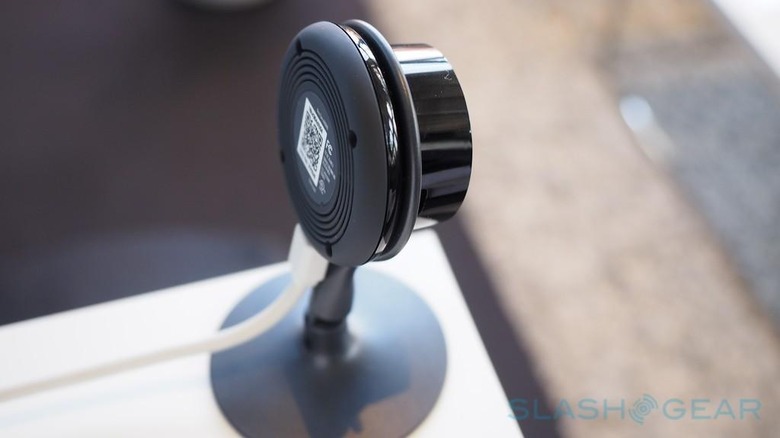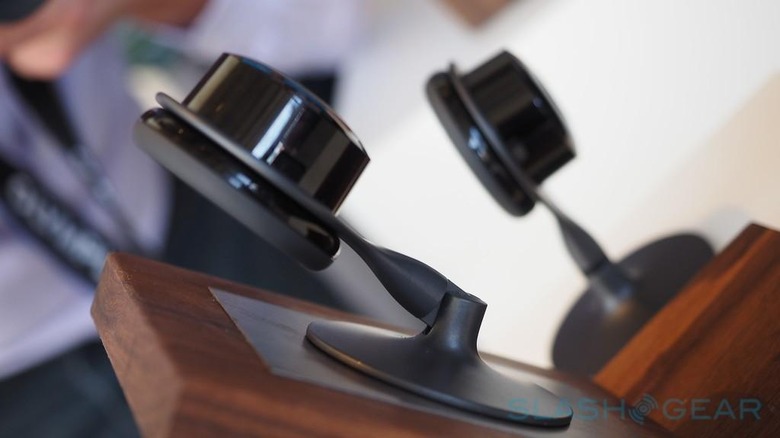No, Nest Cam isn't secretly spying on you
Is your Nest Cam watching you when you thought it was turned off? The WiFi streaming camera has found itself at the center of a security maelstrom this week, after research questioned just what was happening when the indicator light shuts off. Turns out, as with the Internet of Things in general, it's complicated.
Speculation about Nest Cam began following the release of an ABI Research report earlier this week, which took issue with the camera's power consumption when not streaming.
Measuring current draw when active and when turned "off" in the Nest app, the company concluded from the figures that "it appears Nest Cam is working around the clock."
"When a device goes to power down mode, you expect the current drain to drop quite a bit," Jim Mielke, Vice President of Teardowns at ABI Research, said of the company's findings.

"In this case, the current drain only changed slightly when given the turn off command, reducing from 370mA to 340mA. Typically a shutdown or standby mode would reduce current by as much as 10 to 100 times."
ABI Research went on to pinpoint the LED indicator turning off as being responsible for the 30mA reduction.
It's unclear where the company's 10-100x current reduction expectation stems from. One commonly-cited example is TV standby, where the display is powered off but the set is still responsive to IR commands from the remote control.
As analogies go, though, it's not a perfect match. In the case of Nest Cam, the main consumer of electricity is the wireless and processing components of the connected device, not the camera sensor itself.
That power consumption comes down to how fast the Nest Cam can begin streaming. A cold start could take 45-60 seconds before the camera is ready to pipe video through the app – or potentially more, depending on how swift your router is to assign it an IP address – which would seem all the longer if you'd just been notified of a fire or a potential intruder.

Instead, Nest keeps the Nest Cam in a connected but non-streaming state. The wireless chipset and processor are active, maintaining a link to the router, but nothing from the camera is being streamed to the cloud.
Nest couldn't give me a breakdown of how the components in its camera use power; however, a spokesperson for the company did confirm that the near-active status even when not streaming is by design.
"When Nest Cam is turned off from the user interface (UI), it does not fully power down, as we expect the camera to be turned on again at any point in time," the spokesperson told me. "With that said, when Nest Cam is turned off, it completely stops transmitting video to the cloud, meaning it no longer observes its surroundings."
Should an LED be lit even in that condition? That's the argument the paper's author takes, but Nest argues that being able to selectively control whether the LED is on or not is a boon to owners, not a shortcoming.
In a baby's room, for instance, being able to turn off the LED might be preferred.
With no internal storage for caching video and/or audio locally, if Nest Cam isn't streaming to the company's cloud, it's in effect no longer acting as a camera.

Meanwhile, each unit uses 128-bit SSL encryption and a unique 2,048-bit RSA key, Nest points out, so that sniffing the WiFi link locally wouldn't give unauthorized users access to video either.
The company also pointed me to a recent CIO report in which Nest Cam was praised for its security.
In the end, the best advice if you're concerned about the Internet of Things watching you while you're unawares is probably to not invite it into your home. True skeptics convinced that Nest – and its Google owner – is wanting to watch them 24/7 probably won't be satisfied even with an indicator light, after all.
Alternatively, you could use different components of the smart home in combination. Rather than plugging your Nest Cam – or any other WiFi camera – into an outlet directly, putting a remotely-controlled outlet switch in-between would mean total control over whether the camera was powered up or not.
MORE Nest Security Policy
